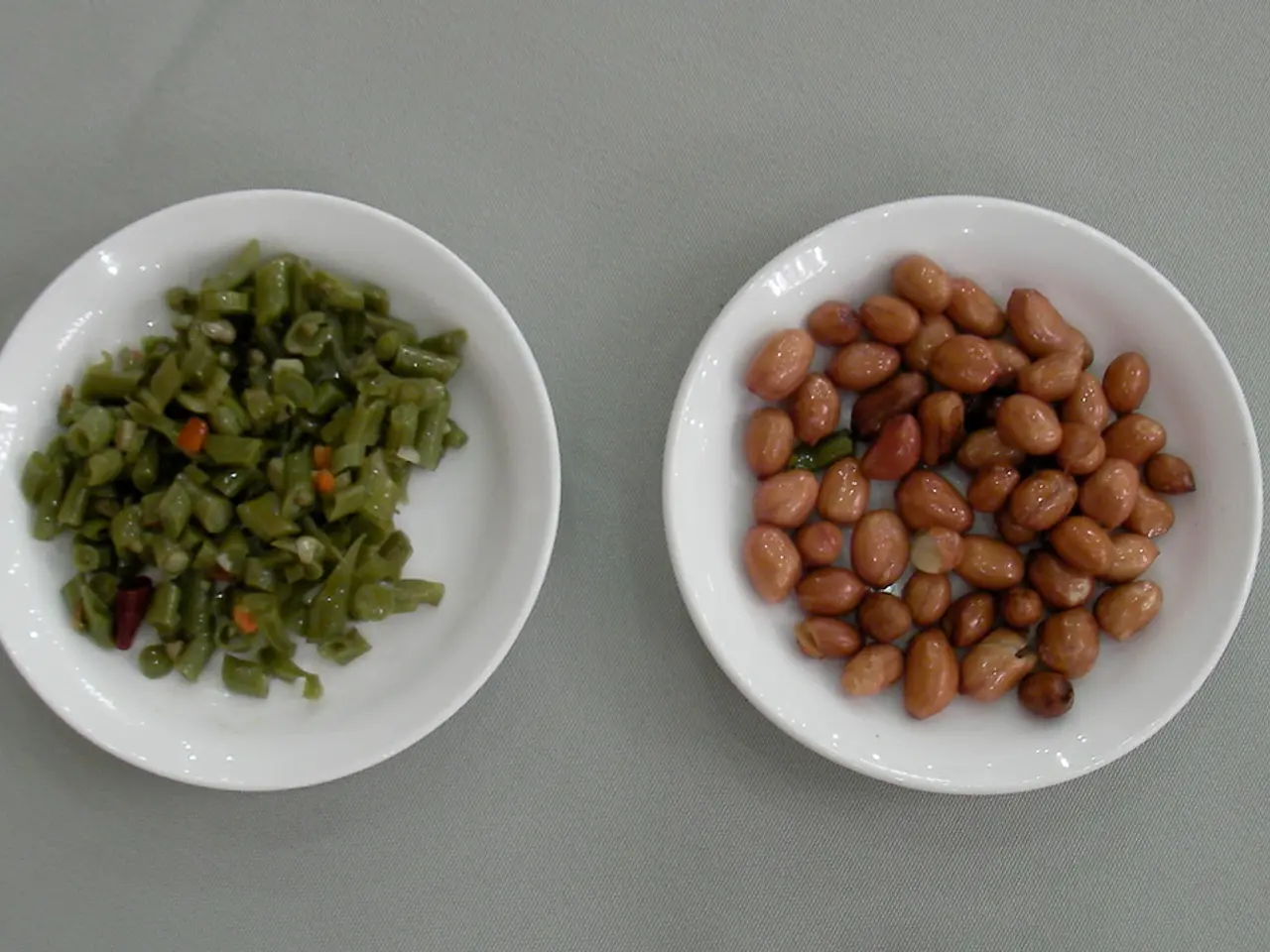Blood test might foretell the success of peanut therapy treatment
In a groundbreaking study, researchers have identified potential biomarkers that could revolutionize the treatment of peanut allergies in children. The study, published in the journal "Allergy", was conducted by a research team led by Young-Ale Ae Lee from the Max Delbrück Center for Molecular Medicine and Kirsten Beyer from Charité.
The study focused on children with a peanut allergy who were undergoing oral desensitization therapy. The researchers examined various factors in the children's blood and immune cells before and after therapy, including allergy antibodies, immunoglobulins, and inflammatory substances called cytokines.
The findings suggest that children who respond well to treatment have a less reactive immune system before starting therapy. Specifically, the researchers found lower immunoglobulin and cytokine levels in the blood of children who responded well to treatment.
These biomarkers provide a biological signature prior to treatment that may allow clinicians to predict which children will benefit most from oral immunotherapy. The researchers are planning a follow-up study to confirm the results.
The potential biomarkers identified could help determine in the future how well a child will respond to therapy and what risks are involved before desensitization. The study also highlights the possibility of tailoring the length of treatment and the amount of peanut allergens administered according to each patient's immune profile.
According to the lead author, Aleix Arnau-Soler, children who responded well to treatment had a less reactive immune system before starting therapy. The scientists are working on a predictive model to tailor desensitization treatment to a child using a simple blood test.
The study findings are particularly significant as three percent of all children in industrialized countries have a peanut allergy. Oral immunotherapy aims to gradually accustom the body to the allergen by ingesting it. If successful, the personalized approach could reduce the risk of severe allergic reactions during desensitization.
The biomarkers identified include levels of immunoglobulins (allergy-related antibodies), cytokines (inflammatory messengers), gene expression patterns and DNA methylation in immune cells, and gut-associated immune cell profiles. Although these cells are less common in blood, their gene regulation patterns appear crucial in the immune response to peanut allergens and treatment efficacy.
In summary, a simple blood test assessing immunoglobulins, cytokines, and immune cell gene activity—especially focusing on gut-related immune cells—holds promise as a tool to tailor peanut allergy immunotherapy according to each child’s unique immune profile. The research team is currently validating these findings in follow-up studies and developing predictive models for clinical use.
[1] Lee, Y.-A., et al. (2023). Predictive biomarkers for personalized oral immunotherapy in children with peanut allergy. Allergy.
[2] Arnau-Soler, A., et al. (2023). Gene expression patterns in children with peanut allergy undergoing oral desensitization therapy. Journal of Allergy and Clinical Immunology.
[3] Beyer, K., et al. (2023). Cytokine levels and peanut allergy treatment response in children. Journal of Pediatric Allergy and Immunology.
[4] Ae Lee, Y., et al. (2023). Immunoglobulin levels and peanut allergy treatment response in children. European Journal of Pediatrics.
- The study published in journal "Allergy" found that children who respond well to peanut allergy treatment have lower immunoglobulin and cytokine levels in their blood before starting therapy.
- The researchers identified biomarkers such as immunoglobulins, cytokines, gene expression patterns, DNA methylation, and gut-associated immune cell profiles that could help determine a child's response to peanut allergy treatments.
- The team is currently developing a predictive model to tailor peanut allergy immunotherapy for individual children using a simple blood test that assesses immunoglobulins, cytokines, and immune cell gene activity.
- A follow-up study is planned to confirm the findings and develop predictive models for clinical use, particularly for the treatment of neurological disorders and other mental health conditions with therapies and treatments that include CBD.




